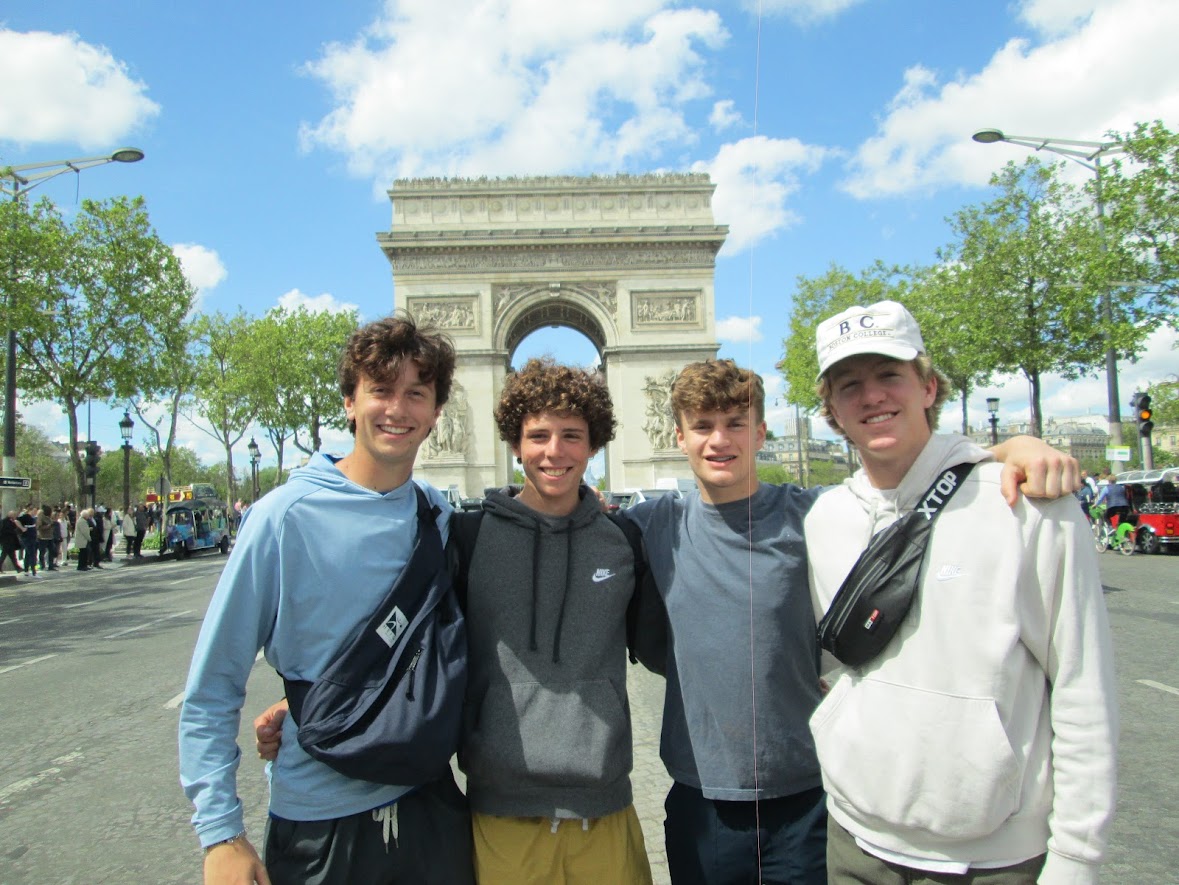There’s no doubt that traveling can have many benefits; it can reduce school or work-related stress as well as expose you to new cultures. But there are also some lesser-known advantages that can be gained from traveling.
I recently took a school trip to France. While there, I was exposed to the vibrant culture of both Paris and the nearby suburb of Sucy-En-Brie. We were able to sample the local cuisine, see world-famous sites, and meet people from all over the globe
In addition to the Scituate and Sucy students, there were also school groups from Germany and Italy. The experience was certainly eye-opening, as we found that our preconceptions of students from other countries were often incorrect. Sophomore Peter Nelson mentioned his attitude was altered over the course of the trip, “I would say I went into with a rather competitive mindset but I was met with an overflow of friendliness and friendship. I got along with a lot of people I didn’t necessarily think I would.”
In a study highlighted by the Harvard Business Review, adults who traveled abroad had a greater ability to suspend judgment about a person until acquiring information beyond surface qualities. Scituate student Jesse Styles also commented on his changed perceptions, “I was surprised because everyone was a lot nicer than expected, and people are a lot more social than I thought.”
Although there was a slight language barrier, there was one pastime all four groups had in common: sports. Each country had teams for basketball, volleyball, and ping pong.
Despite this commonality, there were also notable differences. One example centered on the hour at which Parisians ate supper, often beginning a meal after 8 pm. The second factor was how meals felt significantly longer, as Joe Gibson pointed out in his interview, “The dinner was a big difference to me because usually I have one course. In France there are a lot of four-course meals… and the food’s a lot healthier.”
Styles also noticed differences in the meals, as well as family dynamics, “It’s very different, especially the food, dinner is very important. They have a lot of family time too.”
Traveling proved beneficial in other areas as well. After getting back home, it felt much easier to focus, especially on schoolwork. Although missing a week of school meant doing a large amount of homework, the fact that I didn’t have to think about work for a week renewed my ability to focus. The trip acted as a reset in a sense. It was similar to coming back from vacation when you’re ready to get back into your routine. This is confirmed in the Harvard study referenced above; exposure to foreign travel was linked to a greater ability to direct attention and energy. A Yale University study also found that people who take at least 3 days off for vacation feel more relaxed, less worried, and in a better mood for weeks after.
Many students expressed similar thoughts on whether they would recommend travel to their peers:
“Yes I would, it’s just a great experience to meet people from other countries and a great way to meet new friends.”
“Definitely, I definitely recommend doing the France trip next year.”
“I would 100% recommend it because it’s a once in a lifetime opportunity. You get to meet so many new people, so many new friends. Now you have connections all over the world.”
Now, where do you want to go?
